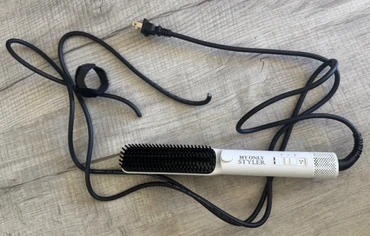Report calls for an all hands response to escalating fraud
-
Consumers are losing an estimated $158 billion a year to fraud, with about 57,000 new victims each day, a new report warns.
-
The National Task Force on Fraud and Scam Prevention calls for a coordinated strategy across financial firms, telecoms, social media, and big tech.
-
Advocates urge Congress to close legal gaps, hold institutions that receive fraudulent payments accountable, and strengthen enforcement tools.
A new report, United We Stand: A National Strategy to Prevent , says fraud has reached a devastating national scalecosting consumers roughly $158 billion each year and ensnaring about 57,000 new victims daily. The National Task Force on Fraud and Scam Prevention, which spans private, public, and nonprofit sectors, argues that the surge of artificial intelligence tools and faster payment options has made more destructive and harder to stop.
Many are now what are called APP meaning that consumers are tricked into voluntarily sending money, often via an app. Learn more about how you can prevent APP here.
We need all hands on deck to combat fraud, said Carla Sanchez-Adams, senior attorney at the National Consumer Law Center (NCLC). Financial institutions and payment providers need to ensure criminal fraudsters are unable to open accounts and receive stolen funds. Telecom and social media companies must prevent these bad actors from accessing and abusing their systems and platforms to initiate fraud schemes. And big tech companies are needed to leverage their best technology to detect and eliminate fraud.
Congressional hearing spotlights legal gaps
At a recent hearing of the U.S. House Financial Services Committees Oversight and Investigations Subcommitteetitled Fraud in Focus: Exposing Financial Threats to American FamiliesSanchez-Adams urged lawmakers to plug holes in consumer protection laws. Among the priorities she outlined:
-
Close legal gaps so consumers are protected from both unauthorized transactions and fraudulently induced payments.
-
Hold institutions that receive fraudulent funds accountable, not just the originating platforms.
-
Coordinate with the FCC to address the role of telecommunications providers that enable large-scale scam campaigns.
Industry and federal and state governments must work together to strengthen policies and practices to protect consumers, added Patrick Crotty, senior attorney at NCLC. Congress and regulators should also expand enforcement of existing laws and hold companies that facilitate fraud, like Voice over Internet Protocol (VoIP) call providers, accountable for fraud on their networks.
Enforcement wish list: strengthen TCPA and broaden telemarketing rules
Advocates say the Telephone Consumer Protection Act (TCPA) should be strengthened to bolster enforcement against providers that transmit scam calls and textsincluding an explicit pathway to target providers that allow scammers onto U.S. phone networks. They also want the FTCs Telemarketing Sales Rule expanded to cover all attempts to wrongfully obtain things of value, including personal data, not just money.
The report contends that beyond updating statutes, regulators and companies need to deploy advanced analytics and identity checks to prevent fraudsters from opening mule accounts, and to choke off scam traffic before it reaches consumers.
Whos behind the task force
The National Task Force on Fraud and Scam Prevention is convened by the Aspen Institute Financial Security Program with support from JPMorgan Chase, Zelle, Block, Target, Amazon, and CLEAR, and impact partners AARP and Stop Alliance.
Prevention tips for consumers
-
Slow it down: Scammers use urgency. Hang up, pause, and verify through official channels you find yourself.
-
Lock down payments: Treat instant transfers (P2P, wires, crypto) like cashonce sent, its gone. Enable extra verification for large or first-time payees.
-
Double-check caller identity: Dont trust caller ID or profile pics. Call back using a number from a bank card or official website.
-
Use account alerts: Turn on transaction and login alerts at your bank and credit card issuer.
-
Guard personal data: Never share one-time passcodes, PINs, or full SSNs over the phone or text.
-
Report fast: If youre targeted or duped, contact your bank and report to the FTC (ReportFraud.ftc.gov) and your state AG.
What to do if youre scammed
-
Contact your bank immediately to try to cancel or recall the payment; ask for written confirmation of your claim.
-
Change passwords and enable 2FA anywhere the scammer may have access (email, banking, cloud drives).
-
File official reports with the FTC, your state attorney general, andif it involved phone or textthe FCC.
-
Preserve evidence: Save messages, usernames/handles, phone numbers, transaction IDs, and screenshots.
-
Place fraud alerts with credit bureaus; consider a credit freeze if identity data was exposed.
-
Follow up regularly with your bank and agencies; keep a timeline and ticket numbers.
Quick checklist
Pause and verify through trusted contact info
Use bank alerts and 2FA on all financial accounts
Treat instant transfers like cash
Never share one-time codes or PINs
Report immediately and save evidence
Posted: 2025-10-03 19:38:07





















